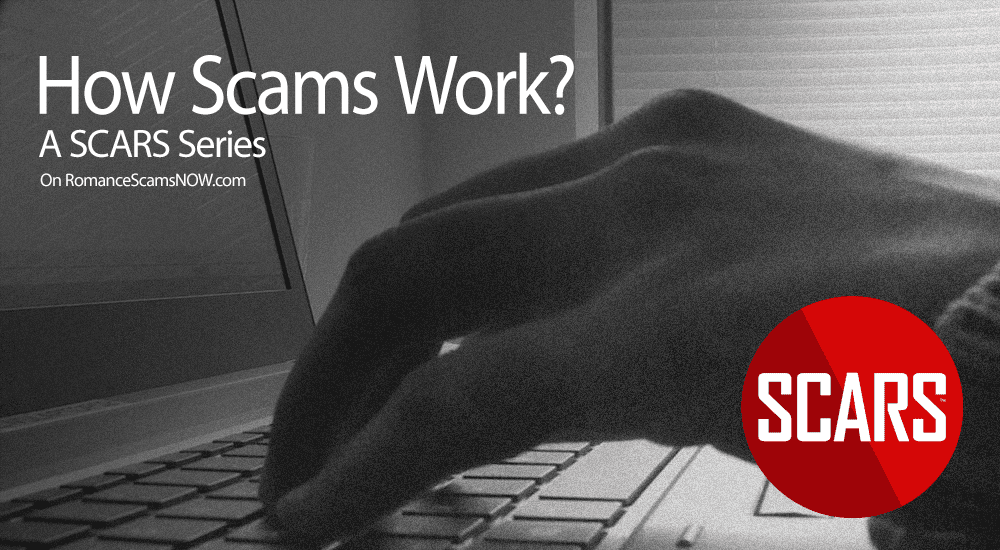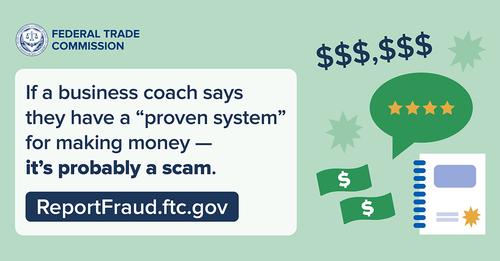The Internet Is Full Of Fake Business Coaches, Influencers, And Scammers Offering Get Rich Quick Schemes For Just A Little Money Up Front!
How Fake Business Coaches Present and Advertise Scams that are Guaranteed to Make Lots of Money with Guaranteed Money-Making Schemes!
Fake business coaches are a growing problem, and they are becoming increasingly skilled at presenting and advertising their scams. These scams often promise to teach people how to make lots of money quickly and easily, but they are nothing more than a waste of time and money.
How Fake Business Coaches Present Their Scams
Fake business coaches use a variety of tactics to present their scams. They may create elaborate websites that make them look like successful entrepreneurs. They may also give free webinars or seminars where they share some basic business advice, but they always hold back the best information for their paying customers.
Fake business coaches often use fake testimonials from satisfied customers to promote their scam programs. However, these testimonials are usually fake or misleading. Fake business coaches also use social media extensively to promote their scams, such as YouTube and TikTok. They create fake accounts or post sponsored ads that promise to teach people how to make lots of money quickly and easily.
How Fake Business Coaches Advertise Their Scams
Fake business coaches and influencers use a variety of advertising methods to reach potential victims. They may run ads on search engines and social media platforms such as Facebook or LinkedIn. They may also send spam emails or create fake websites that look like legitimate business websites.
Fake business coaches often use persuasive language in their advertising. They promise to teach people how to make millions of dollars or how to retire early. They also claim that their programs are guaranteed to work.
How To Identify A Fake Business Coach Scam
There are a few things you can look for to identify a fake business coach scam:
- Promises of guaranteed success: If a business coach promises that you will make a certain amount of money or achieve a certain level of success, it is likely a scam. There is no such thing as guaranteed success in business.
- Upfront fees: Fake business coaches often charge upfront fees for their programs. Legitimate business coaches typically do not charge upfront fees.
- Testimonials that seem too good to be true: If a business coach’s website or advertising is full of testimonials from happy customers who claim to have made millions of dollars, be wary. These testimonials are often fake or misleading.
- Vague promises: If a business coach makes vague promises about what you will learn in their program or what results you will achieve, it is likely a scam. Legitimate business coaches will be specific about what you will learn and what results you can expect.
How To Avoid Them!
How to avoid get-rich-quick schemes promoted on social media by fake business coaches, influences, and scammers of all kinds
Social media is a great way to stay connected with friends and family, but it can also be a breeding ground for scammers. Get-rich-quick schemes are one of the most common types of scams promoted on social media, and they can be very tempting to people who are looking for a quick and easy way to make money.
Here are some tips on how to avoid get-rich-quick schemes promoted on social media:
- Be wary of any investment opportunity that promises guaranteed returns. There is no such thing as a guaranteed investment, and any investment that promises guaranteed returns is likely a scam.
- Do your research before investing in anything. This includes researching the company, business coach, influencer, or individual promoting the investment, as well as the investment itself. You should also read reviews from other investors.
- Beware of any business opportunity that requires you to pay an upfront fee. Anything that requires an up front fee is a business that is in business to sell you ‘hot to” materials and has never made money any other way.
- Be wary of any money-making ideas or opportunity that is too good to be true. If an opportunity seems too good to be true, it probably is.
Here are some additional tips to help you identify and avoid get-rich-quick scams on social media:
- Look for red flags. Some common red flags of get-rich-quick scams include:
- Promises of guaranteed returns
- Upfront fees
- High-pressure sales tactics – limited time to take advantage of the offer or discount
- Testimonials that seem too good to be true
- Lack of transparency about the investment or the company promoting it
- Be careful who you follow on social media. Only follow accounts that you trust. If you see someone promoting a get-rich-quick scheme, unfollow them immediately.
- Report scams to social media platforms. If you see a get-rich-quick scam on social media (post, page, or ad,) report it to the platform. This will help to protect other people from being scammed.
Here are some specific examples of get-rich-quick scams that are commonly promoted on social media:
- Forex scams. Forex scams are another common type of scam promoted on social media. These scams typically involve fake forex trading platforms or brokers. They may also involve fake forex trading signals or systems.
- MLM scams. MLM scams, also known as pyramid schemes, are another common type of scam promoted on social media. These scams involve recruiting people into a multi-level marketing company and then pressuring them to sell products or services to their friends and family.
But there are literally tens of thousands o f them.
If you are unsure about whether or not an opportunity is legitimate, it is best to err on the side of caution and avoid it. There are many legitimate ways to make money, but there is no such thing as a get-rich-quick scheme that is guaranteed to work.
What To Do If You Think You Have Been Scammed By A Fake Business Coach
If you have been scammed, you should report the scam to the police and to the Federal Trade Commission (FTC). You can also file a complaint with the Better Business Bureau.
If you think you have been scammed by a fake business coach, there are a few things you can do:
- Contact your bank or credit card company to do a chargeback. If you paid for the business coach’s program with a credit card, you may be able to file a dispute and get your money back.
- File a complaint with the Better Business Bureau. The Better Business Bureau is an organization that tracks complaints against businesses. Filing a complaint with the BBB can help to warn other people about the scam.
- Report the scam to the authorities. If you think you have been the victim of fraud, you should report it to the local police AND to the Federal Trade Commission (FTC) – see reporting.AgainstScams.org for details.
Remember
Fake business coaches, crooked influencers, and scammers are a growing problem, and they are becoming increasingly skilled at presenting and advertising their scams. It is important to be aware of the red flags to look for so that you can avoid being scammed. If you think you have been scammed, there are steps you can take to get your money back and to warn others about the scam.
If you are unsure about whether or not a business coach is legitimate, it is best to err on the side of caution and avoid signing up for their program.
More:
- Not all business coaches are trying to help you | Consumer Advice (ftc.gov)
- BBB Scam Alert: Business promotion and coaching scams
- Catalog Of Social Engineering Traps, Attacks, And Scams (romancescamsnow.com)
- The New Job Scams & Scammers (romancescamsnow.com)
- Jobs Scams & Employment Scams – How Scams Work (romancescamsnow.com)
- Scams and Cryptocurrency Go Hand in Hand (scamsnow.com)
- Teens And Young Adults: Now A Major Target Of Scammers (scamsnow.com)
- Facebook Says It Is Trying To Do Better! (scamsnow.com)
- Why Scammers Don’t Give Up (scamsnow.com)
SCARS Resources:
- Getting Started Right: ScamVictimsSupport.org
- For New Victims of Relationship Scams newvictim.AgainstScams.org
- Subscribe to SCARS Newsletter newsletter.againstscams.org
- Sign up for SCARS professional support & recovery groups, visit support.AgainstScams.org
- Join our Scam Survivors United Chat & Discussion Group facebook.com/groups/scam.survivors.united
- Find competent trauma counselors or therapists, visit counseling.AgainstScams.org
- Become a SCARS Member and get free counseling benefits, visit membership.AgainstScams.org
- Report each and every crime, learn how to at reporting.AgainstScams.org
- Learn more about Scams & Scammers at RomanceScamsNOW.com and ScamsNOW.com
- Scammer photos ScammerPhotos.com
- SCARS Videos youtube.AgainstScams.org
- Self-Help Books for Scam Victims are at shop.AgainstScams.org
- Donate to SCARS and help us help others at donate.AgainstScams.org
- Worldwide Crisis Hotlines: https://blog.opencounseling.com/suicide-hotlines/
Other Cyber Resources
- Block Scam Domains: Quad9.net
- Global Cyber Alliance ACT Cybersecurity Tool Website: Actionable Cybersecurity Tools (ACT) (globalcyberalliance.org) https://act.globalcyberalliance.org/index.php/Actionable_Cybersecurity_Tools_(ACT)_-_Simplified_Cybersecurity_Protection
-/ 30 /-
What do you think about this?
Please share your thoughts in a comment below!
Do You Need Support?
Get It Now!
SCARS provides the leading Support & Recovery program for relationship scam victims – completely FREE!
Our managed peer support groups allow victims to talk to other survivors and recover in the most experienced environment possible, for as long as they need. Recovery takes as long as it takes – we put no limits on our support!
SCARS is the most trusted support & education provider in the world. Our team is certified in trauma-informed care, grief counseling, and so much more!
To apply to join our groups visit support.AgainstScams.org
We also offer separate support groups for family & friends too.
Become a
SCARS STAR™ Member
SCARS offers memberships in our STAR program, which includes many benefits for a very low annual membership fee!
SCARS STAR Membership benefits include:
- FREE Counseling or Therapy Benefit from our partner BetterHelp.com
- Exclusive members-only content & publications
- Discounts on SCARS Self-Help Books Save
- And more!
To learn more about the SCARS STAR Membership visit membership.AgainstScams.org
To become a SCARS STAR Member right now visit join.AgainstScams.org
To Learn More Also Look At Our Article Catalogs
Scam & Crime Types
More SCARS
- ScamsNOW Magazine – ScamsNOW.com
- ContraEstafas.org
- ScammerPhotos.com
- AnyScam.com – reporting
- AgainstScams.org – SCARS Corporate Website
- SCARS YouTube Video Channel












![An Example of How Scammers Use Emergency Scams - 2014 [UPDATED 2024] - on SCARS RomanceScamsNOW.com](https://romancescamsnow.com/wp-content/uploads/2014/06/emergency-scams.png)

Please Leave A Comment - Tell Us What You Think About This!